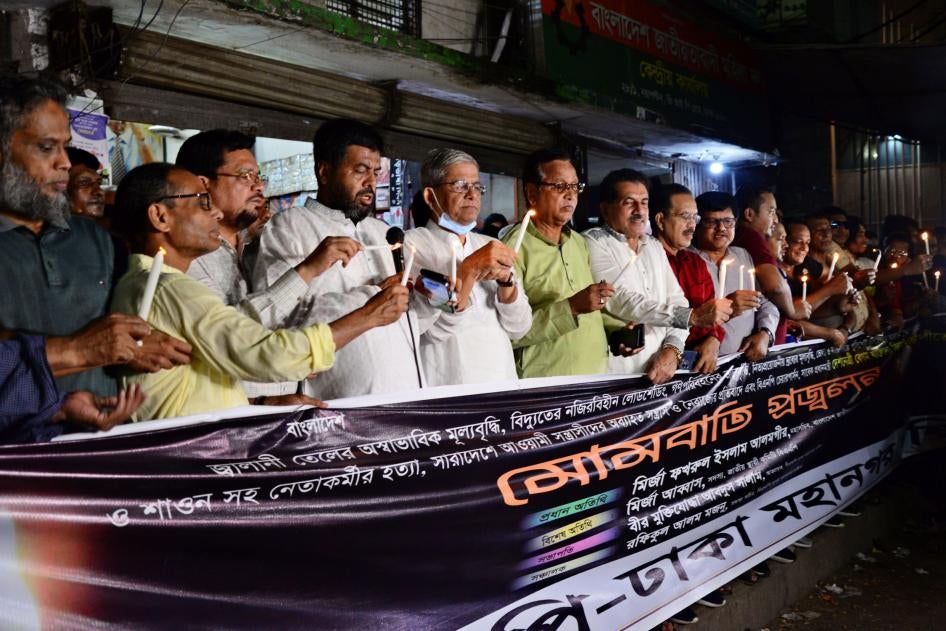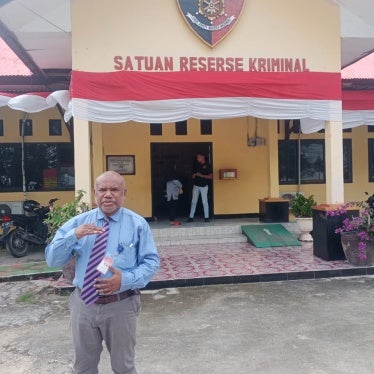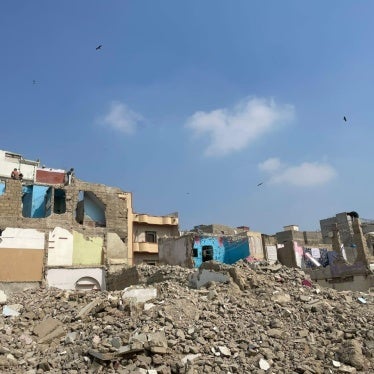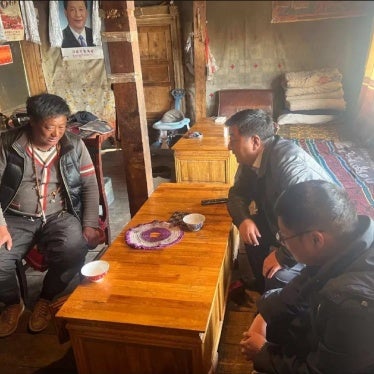(New York) – Opposition groups are reporting an escalation of repression by Bangladesh authorities and attacks by ruling party supporters as the country starts preparing for national elections in 2023, Human Rights Watch said today. Bangladesh authorities should respect the rule of law and protect political opposition supporters’ right to freedom of association, and peaceful assembly.
Mass arrests and police raids of opposition party members’ homes raise serious concerns about violence and intimidation ahead of the upcoming parliamentary elections. Bangladesh election campaigns are often accompanied by violence, but the authorities have failed to properly investigate and prosecute members and supporters of the ruling Awami League, who have targeted opposition public meetings and assaulted participants.
“Prime Minister Sheikh Hasina has repeatedly said that Bangladesh is a mature democracy capable of conducting elections and a peaceful transition of power, but instead previous polls have been marked by violence, attacks on the opposition, and voter intimidation,” said Meenakshi Ganguly, South Asia director at Human Rights Watch. “These recent cases of political attacks and arrests set an ominous tone for the upcoming parliamentary elections.”
At least four people have reportedly died and hundreds have been injured in clashes between police, supporters of the opposition Bangladesh Nationalist Party (BNP), and Awami League supporters, since August 22, 2022, when the BNP staged a series of protests over fuel and commodity price increases. There are concerning reports of the killing of BNP activists during other recent clashes. Each side has accused the other of instigating the violence. However, while police have carried out mass arrests of opposition supporters, those affiliated with the ruling party appear to have impunity for violent attacks.
Among those injured was Tabith Mohammad Awal, BNP executive committee member and former mayoral candidate for the northern section of Dhaka, the capital. Awal was participating in a candlelight vigil organized by BNP in the Banani neighborhood of Dhaka, on September 17, when ruling Awami League supporters attacked the meeting, throwing stones and beating people with iron rods.
“I can clearly identify my attackers, who were members of the Awami League North Dhaka committees,” Awal told Human Rights Watch. “The police were present but did absolutely nothing to help me or stop the attacks or even help after I was hurt. Later, the OC (office-in-charge) of Banani even denied anything happened.”
Instead, authorities have filed mass cases against BNP supporters following these clashes. For example, following a clash on September 21 in which Shahidul Islam Shaon, an activist with the BNP youth wing, was killed, police filed two cases naming 365 BNP leaders and activists as allegedly responsible for crimes, as well as 1,400 as yet unidentified. Police often add people to existing cases as one of those previously unidentified.
According to BNP leaders, at least 20,000 cases have been filed against its supporters, in many cases with the accused unnamed. The use of criminal complaints against large numbers of “unknown” people is a common abusive practice in Bangladesh, allowing the police to intimidate and threaten virtually anyone with arrest, to repeatedly re-arrest detainees even though they are not the named accused in the cases, and to thwart bail requests.
Law enforcement officers have used these open cases as warrants to raid the homes of political opposition members in what appears to be overt political harassment and intimidation. In a video that went viral in September, a leader of the Jubo League, the ruling party’s youth league, reportedly threatened that if ruling party supporters are unable to quash the BNP protests, then “we will start the raids.”
The authorities are also increasingly targeting relatives of expatriate dissidents as a means to threaten critics into silence. On September 9, police arrested Abdul Muktadir Manu, a local BNP politician, for “his suspected collusion” in a Facebook post by his London-based brother that was critical of Prime Minister Sheikh Hasina Wazed. Manu was arrested under Criminal Procedure Code Section 54, a law criticized as a loophole to enable torture because it authorizes the police to arrest people without a warrant and detain them for up to 15 days without allowing them to be represented by a lawyer.
Bangladesh authorities appear poised to further extend the reach of their repression beyond the country’s borders. In a parliamentary foreign affairs standing committee meeting on September 13, Foreign Minister Abul Kalam Abdul Momen presented a list of Bangladeshis living abroad identified as committing “anti-state” activities and called on embassies to bring the individuals to justice.
Prime Minister Sheikh Hasina, as well as Awami League and BNP party leaders, should condemn political violence and call on their supporters to respect the right of all Bangladeshis to safely and peacefully gather, and to run for office without fear, Human Rights Watch said.
International human rights law calls for authorities to uphold free expression and peaceful assembly. The UN Human Rights Committee, which interprets the International Covenant on Civil and Political Rights, says in its General comment No. 37, concerning the right to peaceful assembly, that states have an obligation to “respect and ensure” the right of peaceful assembly without discrimination, and to allow such assemblies to “take place without unwarranted interference.” In case “an assembly provokes or may provoke a hostile reaction from members of the public against participants,” the state has a duty to allow the assembly to go ahead and to protect participants.
“Bangladesh law enforcement are under increased scrutiny following US human rights sanctions and with parliamentary elections on the horizon,” Ganguly said. “Diplomats in Bangladesh should raise concerns publicly and privately that such repression threatens the conditions for a free and fair election.”









